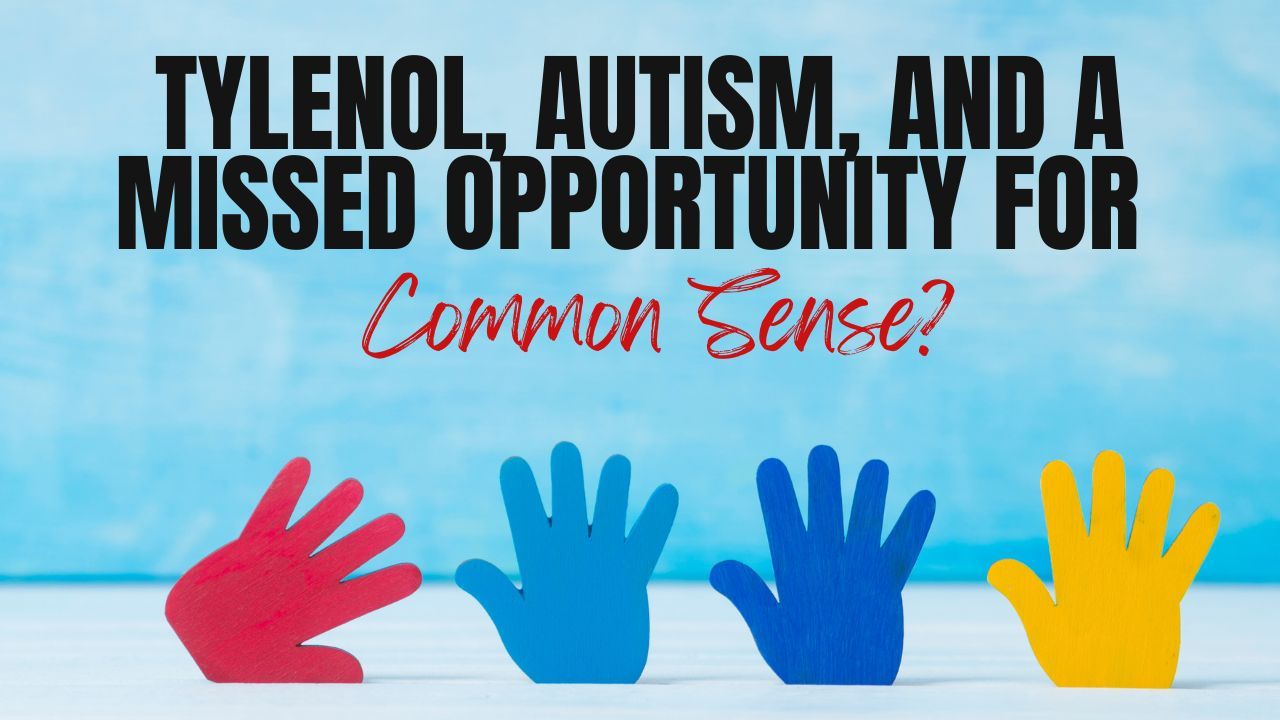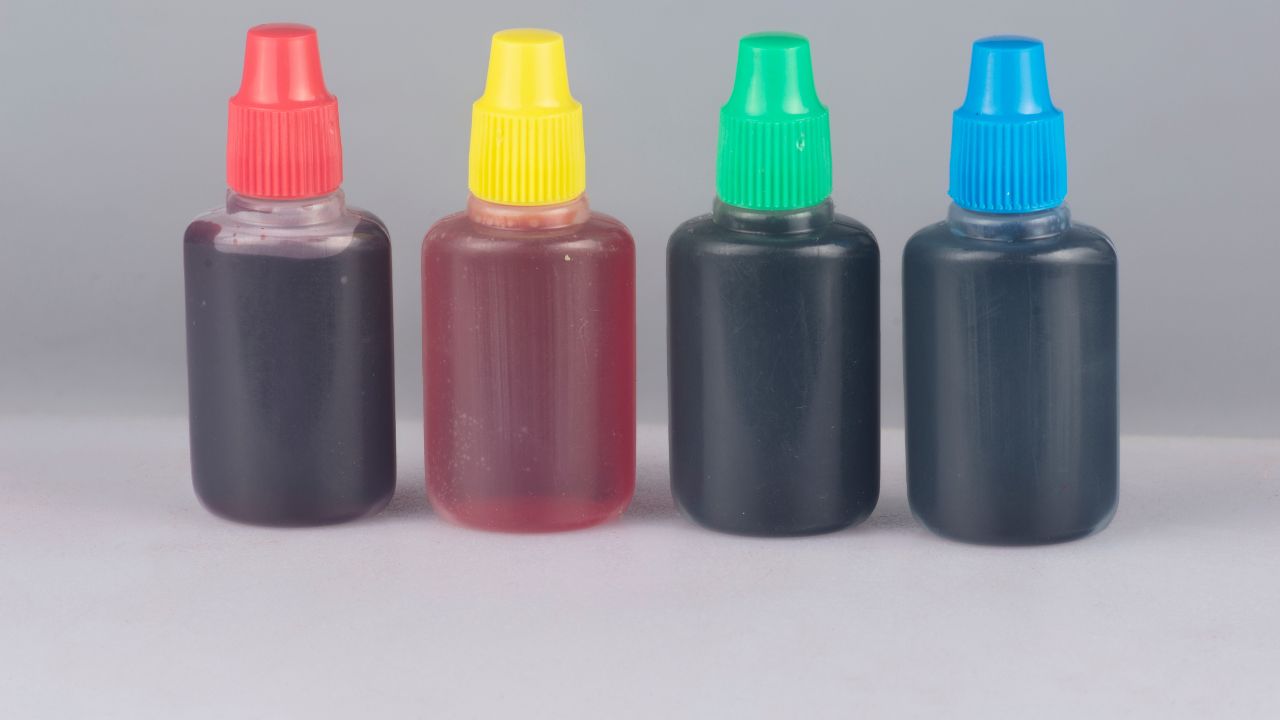Tylenol, Autism, and a Missed Opportunity for Common Sense?
Sep 27, 2025
Dr. Jon Repole
In September 2025, public attention turned sharply to a controversial claim: that taking acetaminophen (the active ingredient in Tylenol) during pregnancy may increase the risk of a child developing autism.
Here’s a quick synopsis of what unfolded:
-
The U.S. Food and Drug Administration (FDA) officially initiated a label change for acetaminophen products, citing a “considerable body of evidence” of a possible link between prenatal use and neurological conditions such as autism and ADHD.
-
At a White House press conference, President Trump and Health Secretary Robert F. Kennedy Jr. urged pregnant women to avoid Tylenol, citing the potential risk to their unborn children.
-
The World Health Organization (WHO) pushed back, stating that no conclusive evidence currently supports an acetaminophen–autism causal link, and reminding the public that any medication during pregnancy should be managed in consultation with a physician.
-
Scientific bodies and autism research groups expressed concern. The Autism Science Foundation warned that the claims are based on limited and inconsistent science.
-
Institutions like the UC Davis MIND Institute emphasized that autism is complex, involving genetic and environmental contributions, and cautioned that correlations do not automatically imply causation.
In short, this bold public assertion left the health and research communities in turmoil. But behind the headlines lies a deeper issue: how we frame causality, what we overlook in the gaps of evidence, and whether we’re losing sight of simpler, more integrative thinking about health. That’s exactly what this article is about.

What the Science Actually Says
So, does acetaminophen cause autism? The simple answer: we don’t know.
Most of the studies are observational, meaning they look at patterns in large groups of mothers and children. Some show a possible link, others show none at all. Importantly, correlation is not causation — many other factors like genetics, infections, toxins, stress, or diet could be at play.
A few things to keep in mind:
-
Confounding factors: Moms who take Tylenol may also be sick with fever or infection, which itself can affect development.
-
Mixed results: Some studies suggest a small risk, others find no connection.
-
Theories exist: Scientists have proposed mechanisms like oxidative stress or hormone disruption, but these remain unproven.
-
Expert consensus: Groups like the WHO stress that no clear causal link has been established, and more research is needed.
Bottom line: the idea is worth studying, but the evidence is not strong enough to make firm claims.

The Missed Opportunity: From One-Cause Thinking to Systems Thinking
The Tylenol–autism debate reveals more than just scientific uncertainty. It shows how deeply we, as a culture, still cling to the myth of one cause = one effect. We want a single villain to blame and a single diagnosis to explain everything. But health is never that simple.
For years, we’ve been teaching what we call the Health Equation:
Causes = Effects
Everything affects everything. The “causes” are both nature and nurture — our genetics, diet, lifestyle, environment, relationships, and exposures. Think of it like striking a match on a matchbook. The strike (cause) sets off a chain reaction.
From there, the effects unfold on multiple levels:
-
The Fire (Macro and Micro):
-
Macro Events are the visible flames — our major body systems like cardiovascular, gastrointestinal, detoxification, hormonal, and regenerative systems.
-
Micro Events are the sparks inside the fire — cellular mediators like inflammation, oxidative stress, mitochondrial dysfunction, and toxic burden.
-
-
The Smoke (Diagnosis):
The smoke that fills the air represents the diagnoses we see on charts — autism, diabetes, cancer, autoimmune disease, heart disease. These are not the starting point; they’re the visible byproducts of deeper causes.
When we reduce health to a single cause → single effect, we miss the entire cascade. We miss the way diet and lifestyle choices shape biology. We miss the impact of toxins, stress, sleep, and relationships. And most tragically, we miss the chance for common sense interventions that could prevent suffering long before a diagnosis arrives.

The Rules of Reasonableness and Common Sense
When we step back and look at health influences, the picture is far bigger than any single pill or product. Our diet, the air we breathe, the water we drink, the toxins we absorb — from pesticides, herbicides, plastics, medications, and yes, even vaccines — all compound together. Layer by layer, they create a toxic burden that far outweighs the impact of one isolated agent.
The problem is that debates often cherry-pick one culprit — Tylenol, a food dye, or a chemical — while ignoring the larger context in which these exposures live. Health doesn’t happen in a vacuum. It happens in the food we put into our bodies, the environment we bathe in, the medications we take, and the nutrients we neglect.
This is where I invoke what I call the rules of reasonableness and common sense. It is unreasonable to pin a complex condition like autism on a single exposure while distracting from the obvious truths:
-
Many people eat nutrient-poor, highly processed diets.
-
Factory-farmed animal products introduce heavy loads of toxins with little nutritional value.
-
Children are born already carrying measurable levels of hundreds of industrial chemicals.
-
Everyday exposures — from cleaning products to plastics to unnecessary medications — add fuel to the fire.
Studies that pigeonhole one factor risk taking away personal responsibility. They distract us from the influences that likely contribute 90% or more of the problem. This does not mean pregnant women should freely take Tylenol without concern — but it does mean the far more impactful advice is also the simplest: eat well, move your body, minimize toxins, and make informed choices about what you allow into your system.
In the end, it’s not about ignoring the Tylenol question. It’s about putting it in context — alongside the far larger, and far more actionable, influences that shape health for both mothers and their children.

The Red Dye Analogy
Let’s imagine we put all our focus on red dye. Scientists study it for years, millions of dollars are spent, and the conclusion is finally reached: red dye is harmful. Everyone agrees. Victory, right?
Not quite. Because what happens next? Companies simply reformulate their junk food. The same processed, nutrient-empty products hit the shelves — just without the red dye. People keep eating their Twinkies and Fruit Loops, and we call it progress.
But this is utterly nonsensical. The real message shouldn’t be “avoid red dye.” The real message is eat real food. Whole, unprocessed, nutrient-dense food. Period. Who cares if your ultra-processed snacks have one less artificial chemical if the rest of the product is still sabotaging your health?
When we hyper-fixate on one ingredient, we miss the forest for the trees. True health doesn’t come from tweaking junk food — it comes from stepping away from it altogether.
Coming Back to Common Sense
The Tylenol–autism debate is just the latest example of how we miss the bigger picture. We chase single villains while overlooking the daily choices that matter most. Whether it’s Tylenol, red dye, or the next chemical in the spotlight, the truth remains: health is built — or destroyed — by the sum of many influences, not one.
This is where the serenity prayer becomes a guiding light:
“Grant me the serenity to accept the things I cannot change,
the courage to change the things I can,
and the wisdom to know the difference.”
We may not be able to control every toxin in the air or every chemical in the environment. But we do control a great deal: the food we choose to eat, the water we drink, the products we bring into our homes, the way we move our bodies, and the love and connection we cultivate.
The call to action is simple, but not easy:
-
Eat real food.
-
Limit toxins where you can.
-
Move, breathe, and rest deeply.
-
Take responsibility for your daily choices.
Because while science continues to debate single causes, common sense shows us the path to resilience. If we focus on what we can control — diet, lifestyle, environment, relationships, mindset — we give ourselves and our children the best chance at thriving.
The missed opportunity isn’t just about Tylenol. It’s about reclaiming responsibility and rediscovering the power of common sense.

